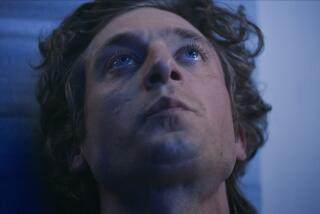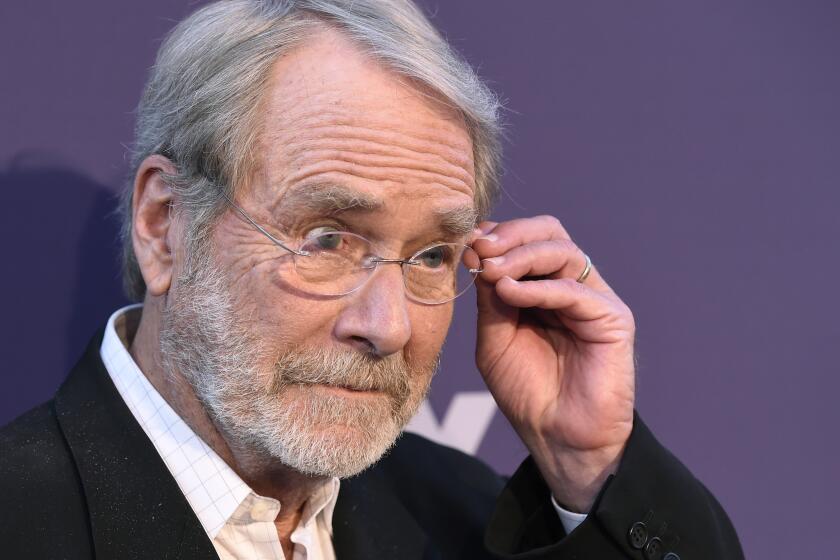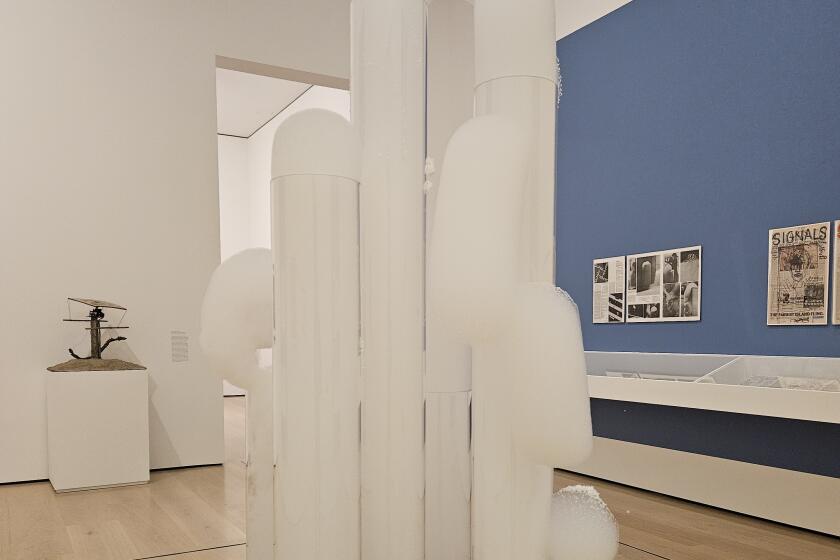MUSIC REVIEW : At Last, Corigliano’s 1st
Los Angeles Philharmonic got around to the all-too-timely drama of John Corigliano’s Symphony No. 1 Thursday night at the Dorothy Chandler Pavilion. Not a moment too soon.
Corigliano’s agonizing, poignantly programmatic tribute to friends and colleagues who have died of AIDS was “generated,” he says, “by feelings of loss, anger and frustration.” The premiere took place in Chicago three years ago under Daniel Barenboim.
The symphony was immediately recorded, with great success, and it has won numerous prestigious awards. Southern California first heard it in 1991, thanks to Catherine Comet and the Pacific Symphony of Orange County. Los Angeles first heard it last November, thanks to Daniel Lewis and the USC Symphony.
The Music Center premiere--which, ironically, took place a day after the death of Rudolf Nureyev--coincided with performances in Minneapolis and Grand Rapids, Mich. Corigliano could not be here because of an interesting schedule conflict: On Friday, he picked up the first International Classical Music Award in Birmingham, England, for his opera, “The Ghosts of Versailles.”
In some ways, Los Angeles treated the belated commemoration with appreciative sensitivity. Eight 12x12-foot sections of the AIDS quilt--which had been Corigliano’s inspiration in the first place--were displayed in the upper foyer. The concert was officially dedicated “to the memory of David L. Brown, former marketing director of the Philharmonic, and to our Music Center colleagues who have succumbed to AIDS.”
If the musicians did not wear AIDS ribbons, at least the ushers did. And, not incidentally, the Corigliano performance under David Zinman, the guest-conductor from Baltimore, was splendid.
In other, crucial ways, the management undercut the impact of event. To get the audience--large, despite the weather--in the mood for the grim reflection of the symphony, someone decided to invite Itzhak Perlman to dash off some pretty ditties. The crowd, primed to adore the violinist in the lyrical platitudes of Dvorak’s F-minor Romance and the hum-along bravura of the Mendelssohn Concerto, obviously wasn’t attuned to the profound, mildly discordant gestures that followed.
A lot of discerning patrons left at intermission. They knew that danger, in the awful form of something unknown, loomed.
Many of those who stayed seemed less than receptive. Although a vociferous minority of sophisticates cheered the performance, the general exodus began virtually before the evaporating diminuendo of the cello’s final A could begin to have its haunting effect.
The leavers were, of course, the losers. In his tapestry of quotations and citations, allusions and illusions, Corigliano depicted his response to tragedy with rousing fury counterbalanced by heart-rending resignation. He made his personal grief universal.
Some of the pictorial effects may seem less subtle with each hearing. Still, the arching pathos survives--in the ghostly tango played by an offstage piano in the first movement, in the delirious, interrupted tarantella of the second, in the mournful chaconne whispered by the cello in the third, and in the complex yet orderly transfiguration of impulses in the so-called epilogue.
Zinman paid attention to the inherent need for narrative propulsion without slighting any dynamic contrasts. He played the piece on a vast expressive scale, keeping the textures marvelously transparent in the introspective passages and defining the massive climaxes with brute force. The Philharmonic responded brilliantly, with especially moving contributions from Zita Carno in the distant keyboard evocations and Ronald Leonard in the solo cello elegies.
To open the pop-oriented portion of the program, Zinman introduced the Philharmonic to the graceful trivia of Dvorak’s “In Nature’s Realm” overture. Then Perlman played the Dvorak Romance--very sweetly--and the Mendelssohn Concerto--very deftly and very intimately.
He probably could meet these virtuoso challenges in his sleep. These days, alas, he sometimes gives the impression that he is doing just that.
More to Read
The biggest entertainment stories
Get our big stories about Hollywood, film, television, music, arts, culture and more right in your inbox as soon as they publish.
You may occasionally receive promotional content from the Los Angeles Times.






